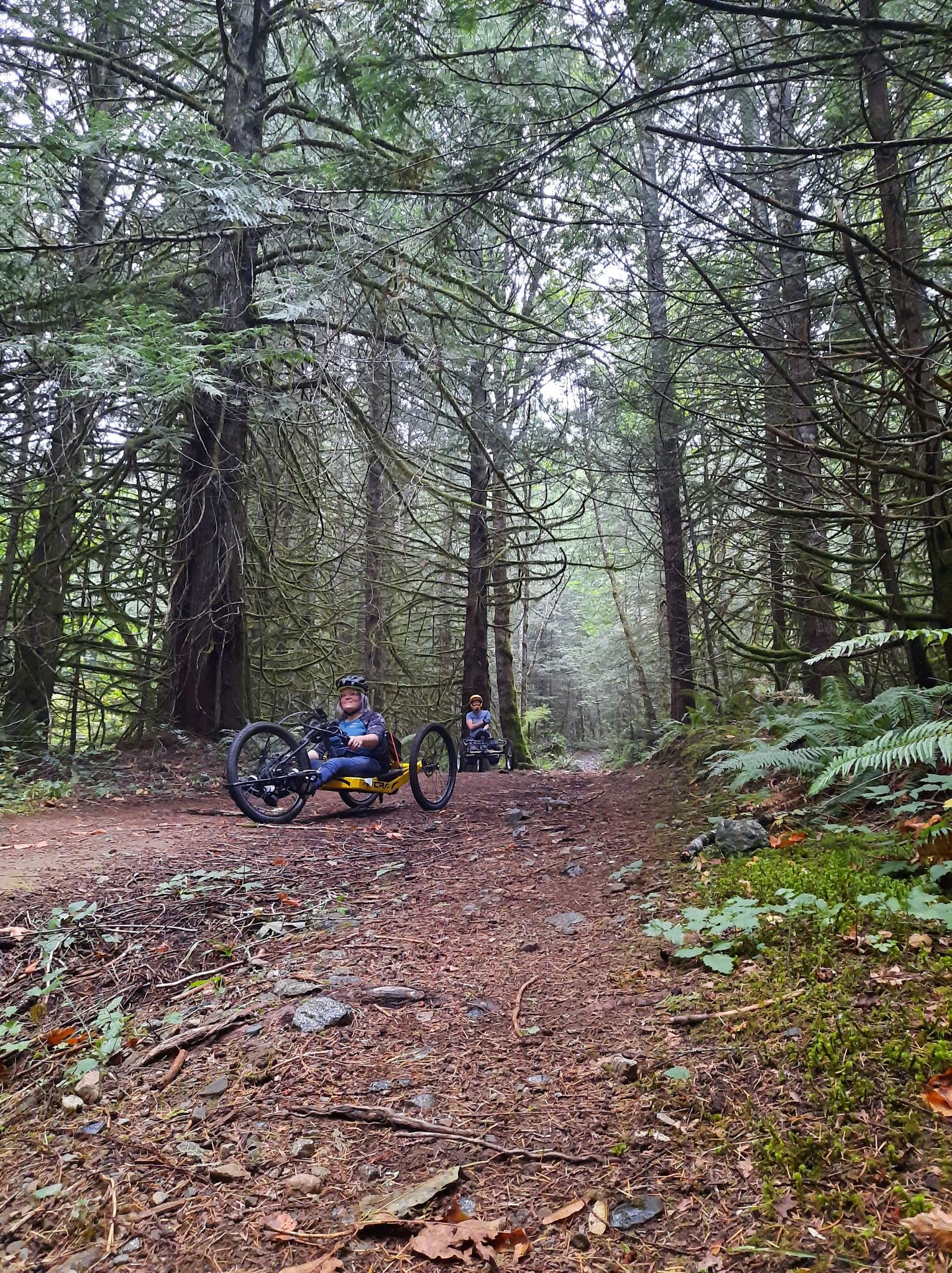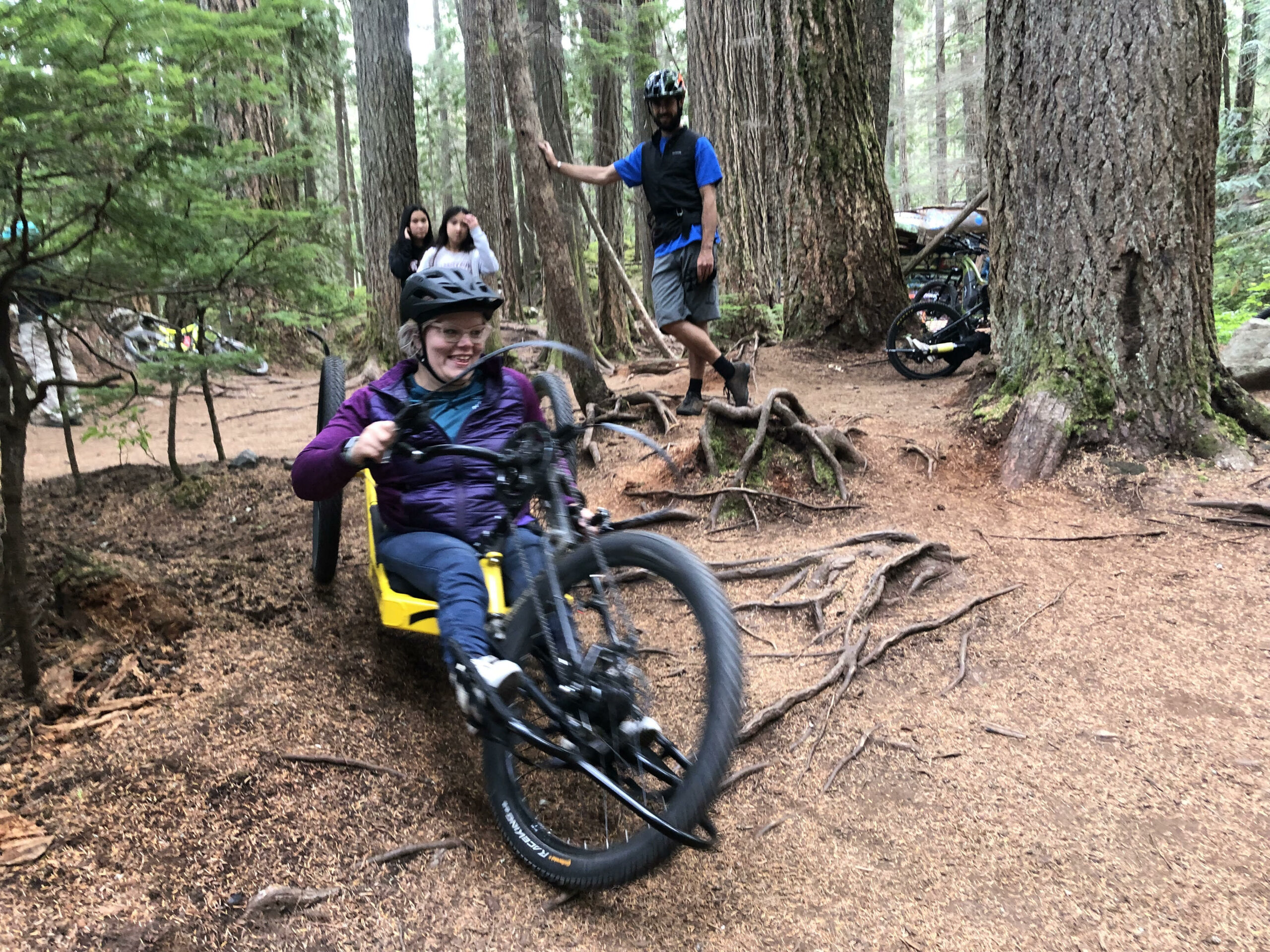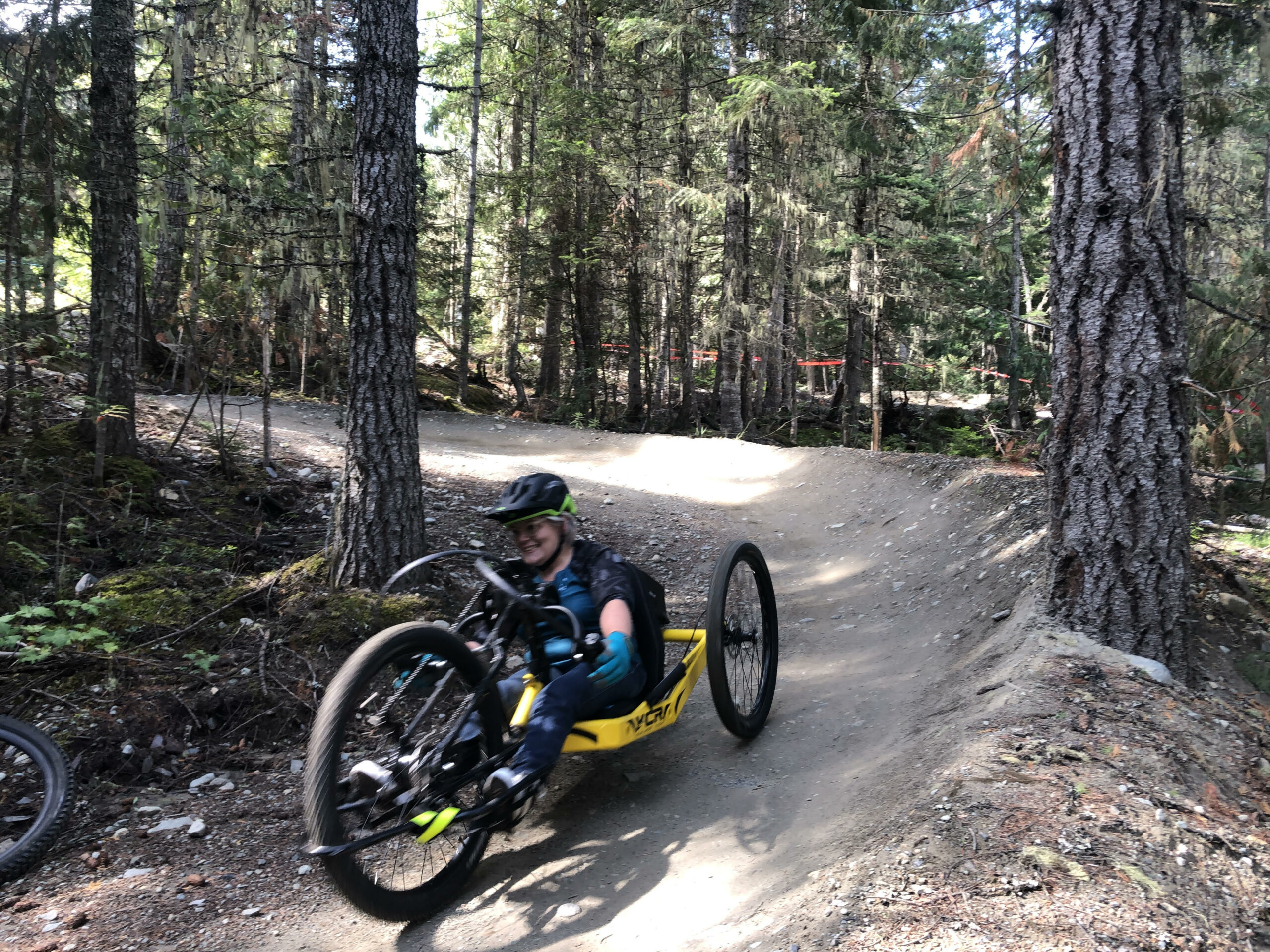By Codi Darnell
May 25, 2021
Welcome to our blog series: The Outdoor Diaries. This series is about exploring the natural world from the perspective of people with chronic conditions and/or mobility issues. While the benefits of nature are for everybody, access to it isn’t always quite as simple.
 The world is full of natural wonders we don’t expect to see in our lifetime. Even the most dedicated of outdoor enthusiasts can’t see every mountain, ocean or forest that stretches around the earth’s surface. But for someone with mobility issues, the outdoor environment in your own backyard can feel just as unattainable as one on the other side of the world.
The world is full of natural wonders we don’t expect to see in our lifetime. Even the most dedicated of outdoor enthusiasts can’t see every mountain, ocean or forest that stretches around the earth’s surface. But for someone with mobility issues, the outdoor environment in your own backyard can feel just as unattainable as one on the other side of the world.
Where a welcome “sign” might be on display at the base of a mountain or along the forest’s edge for someone able-bodied, someone with a disability may instead see a Do Not Enter warning. This situation is all too familiar for Jocelyn Maffin, who poses the question best when she says, “Have you ever discovered a whole world after it was hidden from you for most of your life?”
In our newest entry to The Outdoor Diaries series, we are talking to Jocelyn Maffin, an adapted mountain biking enthusiast with an adorable miniature schnauzer named Gertie, and the best candy-coloured hair north of the (still closed) U.S./Canada border. And the world that was hidden away from her … was the forest.
Even though she grew up in British Columbia, a Canadian province made up of almost 64% forest, it wasn’t until she was 38 years old, sitting inside a forest near Whistler for a work event, that she realized she “hadn’t been in a forest since (she) was young enough to be carried over the roots and uneven trails”.
Throughout her childhood she learned that the forest was no place for her. Jocelyn says, “I grew up in the city, the youngest child of two businesspeople. After having surgery at age nine, even the forested park just across the street wasn’t an easy place to go. In Grade 6, I stayed back in an empty classroom while my classmates explored the Seymour Demonstration Forest. I was told it wasn’t wheelchair accessible and it would take weeks to get an accessible school bus.” She soon saw that her wheelchair was no match for the barriers hidden inside the forest and it became as though “the forest did not exist except as a corridor for the highway”.
 Even without the forest, she was an active child and teenager. Wheelchair basketball was her sport and she played in gymnasiums across Canada, the U.S., and the UK. She saw the outdoors on summer road trips with her dad – staying in motels and occasionally in campsites throughout British Columbia and Washington State. But still, that “sign” on the forest remained: Do Not Enter. So, it was a life-changing moment when “at age 38, the pavement slipped away and the forest enveloped (her). And all it took was the right piece of equipment for the job and people who understood its potential”.
Even without the forest, she was an active child and teenager. Wheelchair basketball was her sport and she played in gymnasiums across Canada, the U.S., and the UK. She saw the outdoors on summer road trips with her dad – staying in motels and occasionally in campsites throughout British Columbia and Washington State. But still, that “sign” on the forest remained: Do Not Enter. So, it was a life-changing moment when “at age 38, the pavement slipped away and the forest enveloped (her). And all it took was the right piece of equipment for the job and people who understood its potential”.
That was the day Jocelyn was introduced to a cross-country trail handcycle. She explains, “It’s a three-wheeled bike with large treads to tackle the uneven terrain, a motor to put momentum in my favour, and hand cranks that give me the ability to explore this new world under my own power. It is my ticket to the outdoors – the key to the world that had faded from my view.”
Now she has her own cross-country trail handcycle and rides at least twice a week. And, to her own surprise, this self-proclaimed city girl has her own rain gear and spends many a weekend on trails covered in dirt.
 However, since overcoming the barriers inside the forest, she’s realized the barriers that exist to get into cycling. Jocelyn says, “I realized how hard it is for most people with disabilities like mine to access cycling and the wider outdoors. What could be as inexpensive as $200 for someone who can ride a two-wheeled bike on a trail or road, is upwards of $4,000 for people with a disability.” The cost is certainly prohibitive and handcycle rentals aren’t anywhere near as readily available as two-wheeled bikes. To try and help remedy this, Jocelyn collects used handcycles with the goal of passing them on so that other people may find the same life-changing discovery that cycling gave her. She is also involved in local groups that promote handcycling. (Fun fact: Jocelyn is one of the main reasons I discovered and now own a cross-country trail handcycle as well!)
However, since overcoming the barriers inside the forest, she’s realized the barriers that exist to get into cycling. Jocelyn says, “I realized how hard it is for most people with disabilities like mine to access cycling and the wider outdoors. What could be as inexpensive as $200 for someone who can ride a two-wheeled bike on a trail or road, is upwards of $4,000 for people with a disability.” The cost is certainly prohibitive and handcycle rentals aren’t anywhere near as readily available as two-wheeled bikes. To try and help remedy this, Jocelyn collects used handcycles with the goal of passing them on so that other people may find the same life-changing discovery that cycling gave her. She is also involved in local groups that promote handcycling. (Fun fact: Jocelyn is one of the main reasons I discovered and now own a cross-country trail handcycle as well!)
To find out more about adapted mountain biking and other spinal cord injury resources in British Columbia, visit www.sci-bc.ca and https://www.facebook.com/handcycleBC.
The Outdoor Diaries: Hiking With MS
The Outdoor Diaries: Rediscovering a Love of the Ocean – A Story of Adapted Surfing
The Outdoor Diaries: Andy McKenna, Multiple Sclerosis and Mountain Biking
The Outdoor Diaries: Climbing Mountains and Removing Barriers with Nick Allen
The Outdoor Diaries: Sit-Skiing After Spinal Cord Injury
